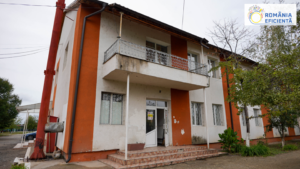Private pension officials ask ECB to fund economic recovery in Romania

The Association of Romania’s Privately Managed Pensions (APAPR) has recently asked for the Eurobonds issued by Romania to be included in the European Central Bank’s (ECB) procurement programme for euro area countries.
According to an APAPR press statement, the action was carried out by APAPR in collaboration with similar entities from Croatia and Bulgaria, via PensionsEurope, the European federation of private pension funds, of which the Romanian organisation has been a member since 2008.
The organisation notes that if the letter sent to the European Commission and the ECB is successful, government bonds issued in euros by Romania will be eligible for purchase by the European Central Bank, with the effect of injecting billions of euros into the Romanian economy, stabilising and reducing the costs at which Romania borrows off foreign markets and implicitly supporting the economy and jobs in the country. In addition, ECB’s support for the prices of the Romanian Eurobonds will have a positive impact on the value of the assets of private pension plans.
According to APAPR, with the administrative closure of a large part of the European and global economy caused by the Covid-19 health crisis, the European Union has devised a program to support euro area economies by ECB injecting liquidity through the purchase of government securities, the PEPP – Pandemic Emergency Purchase Programme. Although Romania is not yet a member of the Eurozone, APAPR argued in its letters that, given the firm commitment to join the Eurozone, Romania deserves to qualify for the programme, along with Bulgaria and Croatia, both of which have already joined the ERM2 mechanism, the antechamber to the Eurozone.
The statutes of ECB and the European treaties show that the role of the European Central Bank is to support the sustainable economic development of all EU member states, not just of those in the Eurozone. Like Bulgaria and Croatia, Romania has set 2024 as a target for a switchover to the euro, according to official government strategies, and it has been carrying out reforms to meet the formal conditions to join the Eurozone.
Also, the central banks of the mentioned countries are part of the ECB system, participating to the capital of ECB.
“This approach of APAPR in support of Romania and the Romanian economy is by no means the first of its kind. Another relevant and similar example is the success of APAPR in convincing the European Union during the previous economic crisis of 2008-2011 to exclude contributions from the national budget to the Pillar II private pensions of Romanians in computing the government deficit and public debt, in order to give oxygen to public finances and continue to allow a sustainable and efficient amass of financial resources in order to supplement the public pension for millions of citizens,” explains Radu Craciun, the chairman of APAPR.
In addition, the expansion of the PEPP by including Romanian Eurobonds will stimulate the Romanian government to accelerate reforms towards the adoption of the euro (nominal convergence), with positive effects on real convergence as well, that is on deep integration of the Romanian economy with the European single market. It would also allow Romania, Bulgaria and Croatia to continue to relax monetary policy and lending conditions, facilitating access of government, citizens and companies to stable and accessible funding for investment and growth.
Via Agerpres














